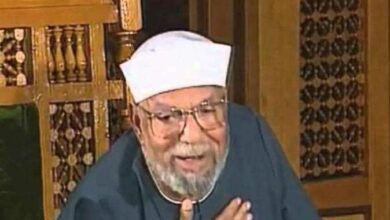In Tora Prison in the 1970s, the patience of political prisoners who had been held there for years was fraying as feelings of frustration crept into their souls. Many prisoners' resolve eroded as the best years of their lives were wasted behind bars.
In a desperate attempt to mend their relationship with the government and restore their lost freedom, some prisoners chose to renounce their previously-held convictions.
Sheikh Aref, an ex-preacher at el-Sayyed el-Badawi Mosque in the Nile Delta town of Tanta, was one such example. Sheikh Aref was not a prominent leader in the Muslim Brotherhood, but was one of its staunchest members. His name became associated with a satirical poem he wrote attacking former President Gamal Abdel Nasser, which he would happily recite whenever an opportunity presented itself.
As the years passed, the once-ferocious opponent of Nasser turned into a regime enthusiast after the experience of imprisonment broke his determination and left him dispirited.
To prove beyond a doubt that he had transformed, Sheikh Aref spent hours on end with leftist detainees–the very same people he once found intolerable. He went as far as writing a poem praising Nasser, after years of insulting the ex-president with the most terrible of descriptions.
This flagrant example of political hypocrisy is nowadays turning into an alarming, wide-scale phenomenon.
Political hypocrisy is hardly an Egyptian invention, but the problem is that it is becoming the norm rather than the exception in public political discourse. It is one of several chronic ailments plaguing our society, including authoritarian rule, abject poverty, cronyism and corruption.
Double-dealing is regarded as politically beneficial behavior, as junior and senior officials shower their superiors with words of praise in order to secure power and advance their careers.
I recall Coptic leaders like Father Kirollos, the bishop of Naga Hammadi and member of the ruling National Democratic Party, expressing their support for President Mubarak years ago, right around the time of elections. In a statement published in Al-Watani newspaper on 4 September 2005, Kirollos declared:
“The Coptic Orthodox Church, myself, and all priests along with 35,000 Christians stand united behind President Mubarak, in obediance to the Biblical verse ‘Blessed be Egypt my people’(Isaiah 19:25).”
In the original text, the Arabic word used for “blessed” was mubarak. Clearly, the bishop was exploiting a religious verse for political ends, making it seem like the verse commanded followers to support the Egyptian president.
This brings us to Gamal Mubarak and the recent poster campaign launched in his support. Does the president's son actually believe this campaign, led by Magdi el-Kordi, to nominate him for the presidency is a “popular” campaign? Or is he aware that this is just another pathetic and poorly organized attempt to get close to those in power?
Political hypocrites are a dangerous phenomenon–their versatility and opportunism are a threat to any political system based on parties and individuals adhering to genuine values and beliefs.
Indeed, blessed be Egypt my people!
Translated from the Arabic Edition.




